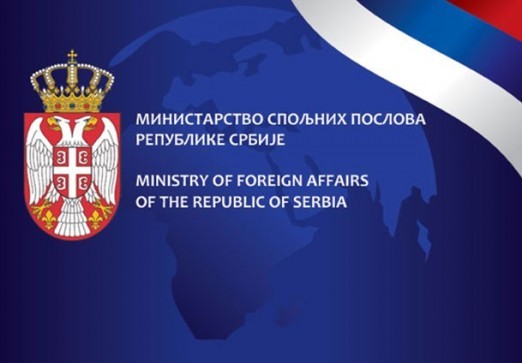



| Thursday, 19 October 2017. | |
| Information on the detention of Serbian workers in Slovakia | |
| + larger fontnormal font- Smaller font |
 Following the detention of 23 nationals of the Republic of Serbia in Šal'a, Slovak Republic, the Ministry of Foreign Affairs wishes to inform the nationals of Serbia that the Slovak labour market over the past few years has increasingly opened for workers from third countries. Following the detention of 23 nationals of the Republic of Serbia in Šal'a, Slovak Republic, the Ministry of Foreign Affairs wishes to inform the nationals of Serbia that the Slovak labour market over the past few years has increasingly opened for workers from third countries.By Slovak standards, skilled labour from Western Europe is too costly, which is why they hire workers from Ukraine, Serbia, Macedonia, Vietnam and other countries. Serbian workers began to experience problems in 2016 because a large number of them decided to take advantage of a visa-free regime of up to 90 days to travel to Slovakia through private agencies, individuals or on their own. However, the competencies of the relevant Slovak authorities regarding illegal employment are not clearly defined. As a rule, inspection of the companies is carried out by labour inspection teams or by police in charge of aliens. Employer's failure to report a worker at least one day before he/she starts work is considered as illegal. On the other hand, the job of police is to check whether an alien has overstayed the expiry date of the entry visa. The inspection is supposed to see to it that the so-called code of labour and employment is in compliance with EU regulations. On Tuesday 17 October 2017, a group of 23 nationals of the Republic of Serbia, who worked in SHC factory in Šal'a, were detained at the Police Detention Centre Medvedevo on account of illegal employment. Immediately upon receiving the above information from Dejan Cvetkovic, a Serb national, the Embassy of the Republic of Serbia contacted the director of the Detention Centre and Aliens Department in the Ministry of the Interior of Slovakia to seek information on their detention. The 23 Serb nationals were detained for alleged illegal employment in the Slovak Republic and according to available information all of them were recruited through Slovak agency Max. Following police interviews conducted in Medvedovo, it was established that two Serb women had no valid travel documents and were therefore detained in the Detention Centre. They were banned from re-entering the Slovak Republic for one year under an administrative decision, giving them a period of seven days to leave the country voluntarily. Failing to do so, they would be subject to a bilateral re-admission protocol. The remaining 21 Serbian nationals were returned to Šal'a. All received administrative bans on leave to stay in Slovakia as they did not possess legal work permits – twenty of them for one year and one person for three years as it had been established that he stayed in the Schengen Area without interruption in the past four years. They were all given a 7-day deadline to voluntarily leave Slovakia or face deportation. The Embassy of the Republic of Serbia in the Slovak Republic will continue to monitor the situation and provide necessary consular assistance to Serbian nationals in line with its competencies. Serbian nationals who do not possess valid travel documents but decide to return to Serbia voluntarily will be issued emergency travel documents within the shortest possible period, in line with legal procedure. Except for Dejan Cvetkovic who informed the Embassy about the detention, none of the other affected Serbian nationals sought consular protection from the Embassy of Serbia. The Ministry for Labour, Employment, Veterans' Affairs and Social Welfare which did not seek information in writing from the Ministry of Foreign Affairs, has been immediately informed once the relevant information was obtained and will continue to be informed on the status of detained Serbian nationals. |